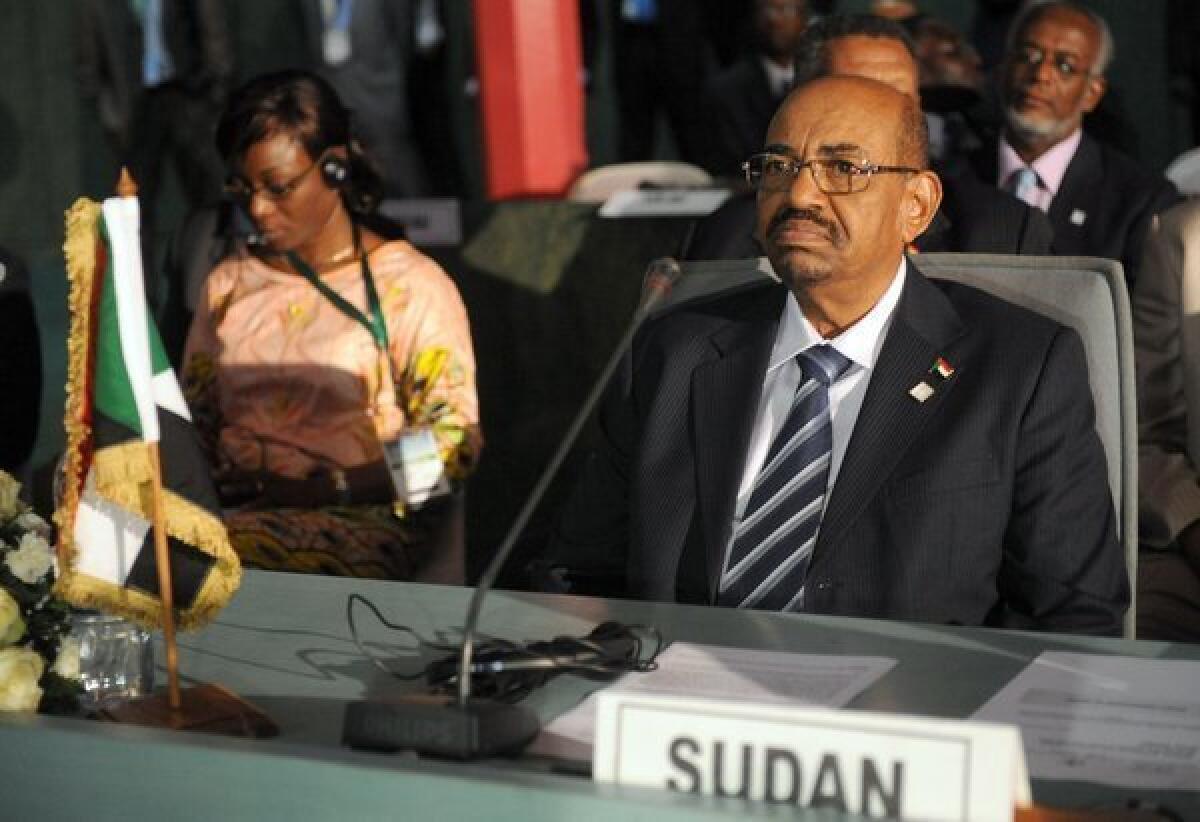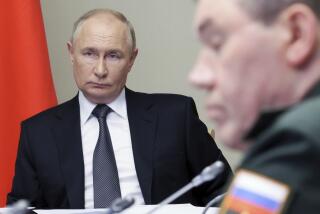Sudan’s indicted President Bashir leaves Nigeria in a hurry

JOHANNESBURG, South Africa -- One day, President Omar Hassan Ahmed Bashir of Sudan was walking down the red carpet in Abuja, the capital of Nigeria, flanked by the presidential guard, on an official visit to attend an African Union summit on AIDS.
The next day, after a flurry of legal threats and calls for his arrest, he was gone.
Bashir, indicted by the International Criminal Court, has become perhaps Africa’s most embarrassing guest.
In many African countries, the protests against Bashir begin even before he arrives. Bashir flew to Abuja on Sunday. His swift departure appeared to be a rare victory for homegrown activist groups after one of them took court action demanding his arrest.
The 2009 and 2010 ICC indictments on charges of war crimes, crimes against humanity and genocide in western Sudan’s Darfur region make it impossible for him to travel to Western countries, but Bashir has visited numerous African countries, including Kenya, Malawi, Chad, Djibouti and Ethiopia.
Nigeria thumbed its nose at the ICC by arranging a guard of honor and red carpet welcome Sunday. Police Minister Kenneth Olubolade welcomed Bashir.
As a signatory of the Rome Statute, which established the court, Nigeria is obligated to arrest Bashir.
Nigerian officials said their s decision to welcome Bashir was in line with African Union policy, which includes a resolution to not cooperate with the indictment. It accuses the ICC of bias against Africa, saying the ICC has focused on prosecutions of Africans.
But the Nigerian activist group Nigerian Coalition for the International Criminal Court said the nation was obligated to cooperate with the court. The group filed suit in Nigeria’s Federal High Court, calling for Bashir’s arrest.
“The ICC is the only credible institution to fight impunity in the world, and when ICC is undermined it is a direct support for impunity,” the group’s directors, Chinonye Obiagwu and Theodora Oby Nwankwo, said in a statement Monday before Bashir flew out of Nigeria.
“In Darfur in Sudan, and in many parts of Africa, victims of massive violations of human rights, including civilians not involved in direct armed conflict, have been victims of pillaging, killing, rape, torture etc.,” they said.
“The national institutions and political leaderships in most of the countries in the continent are incapable, unable or unwilling to provide redress to victims,” they said. “From Rwanda to Uganda, Central Africa Republic to Sudan, the ICC has given hope of justice to millions of hapless victims of war atrocities, who otherwise would live and die without getting justice.”
Bashir left Nigeria within hours of the suit being filed Monday. News of his departure broke Tuesday.
Another Nigerian activist group, Socio-Economic Rights and Accountability Project, or SERAP, called on the ICC chief prosecutor, Fatou Bensouda, to refer Nigeria to the United Nations Security Council for its failure to arrest him.
“Bashir’s official capacity as head of state does not exclude criminal responsibility or get him immunity,” SERAP lawyer Femi Falana told local media.
The ICC on Monday also called on Nigeria to arrest Bashir.
New York-based Human Rights Watch said Nigeria’s decision to host Bashir was shameful and that Bashir belongs in custody.
Kenyan President Uhuru Kenyatta, also indicted on charges of crimes against humanity, also flew in Sunday, but unlike Bashir, he is co-operating with the court.
The court has been under intense pressure in recent months, after Kenyans elected two ICC indictees as president and vice president. In May, the African Union rejected the ICC indictment of Kenyatta and called on the court to drop the case.
Bensouda has said that witnesses have been threatened or killed.
African leaders accuse the ICC of ignoring crimes committed by leaders in other parts of the world and are indignant that the United States refuses to submit to the court.
“Many African leaders have argued that the ICC, which to this point has indicted only Africans, systematically ignores crimes committed in other parts of the world,” analyst David Bosco wrote in Foreign Policy journal in March.
“At various points, African leaders have discussed withdrawing en masse from the treaty that created the court or, more likely, empowering a regional court to investigate atrocities, thereby displacing the ICC.”
ALSO:
Edward Snowden applies for temporary asylum in Russia
Solution for frazzled tourists in China: Baby bottles - for adults
Cow falls on man: 1-ton animal falls through roof onto his bed
More to Read
Sign up for Essential California
The most important California stories and recommendations in your inbox every morning.
You may occasionally receive promotional content from the Los Angeles Times.









